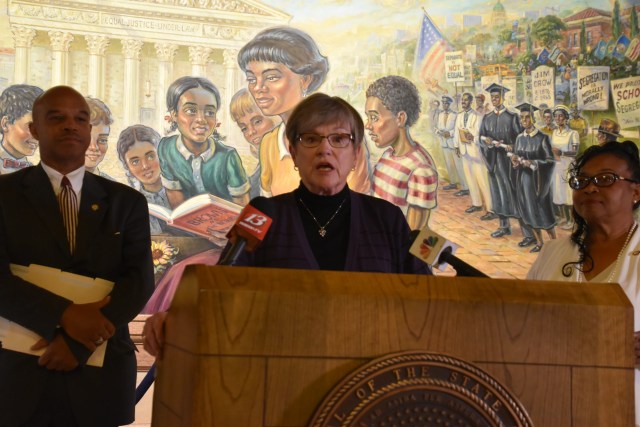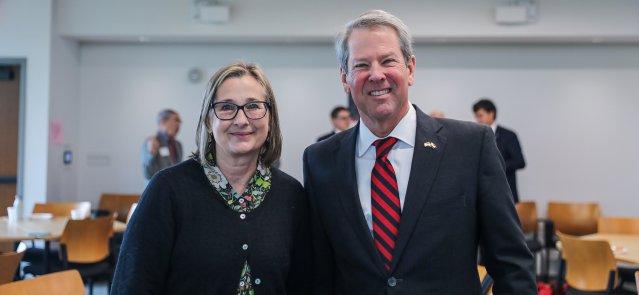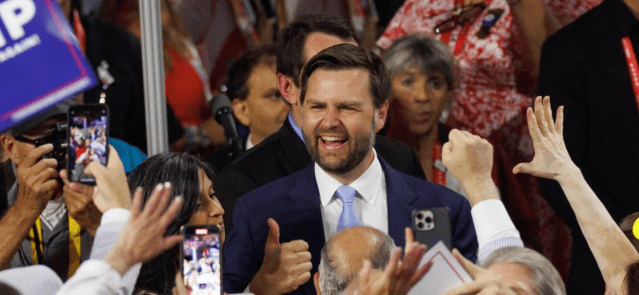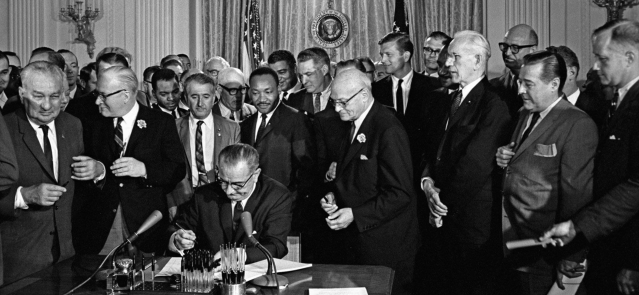On a sullen late-November day in 1963, we returned from our afternoon recess to find our second grade teacher ashen and sad. As we settled into our chairs, Miss Smith told us she had some terrible news to share: President John F. Kennedy had been assassinated.
I don’t recall if I knew what “assassination” meant as a 7-year-old. By that evening, I had witnessed my parents weeping for the first time as President Kennedy’s coffin was lowered to the tarmac, his blood-stained widow looking on. Two days later, while dressing for church, we watched the alleged shooter, Lee Harvey Oswald, murdered on live TV. These were incredibly jarring experiences.
To be a member of the baby boom generation means you grew up with the specter of political violence, American style. With the constant backdrop of the Vietnam War invading our homes on the evening news daily, the violence continued unabated for almost two decades.
The Rev. Martin Luther King Jr. was gunned down on a Memphis motel balcony on April 4, 1968. Cities across America exploded in violence, which was tragically ironic since King’s signature had been nonviolent protest. It was one of the rare times a political assassination prompted widespread violence.
Two months later, U.S. Sen. Robert F. Kennedy was murdered in a Los Angeles hotel hallway. The incident was particularly unsettling because RFK had crisscrossed the Hoosier State during the 1968 Indiana Democratic presidential primary the previous three months. He had made a whistle stop at the rail station in my hometown of Peru, Indiana, drawing a huge crowd. The image of Bobby and Ethel Kennedy disappearing down the tracks waving goodbye as the Wabash Cannon Ball pulled out of town still haunts me.
In August 1968, our family gathered with friends at a lakefront home in Long Beach, Indiana, and I remember seeing my parents and their colleagues huddled around the TV set. Just 35 miles away across Lake Michigan, Chicago’s Grant Park erupted in a police riot during the Democratic National Convention. The whole world was watching.
Four years later, Alabama Gov. George Wallace was mowed down in Maryland during the 1972 Democratic primary by a man seeking notoriety. Then there were two assassination attempts on President Gerald Ford, both in San Francisco three weeks apart. In 1980, former Beatle John Lennon was slain outside his New York apartment.
And in March 1981, a day when Indiana University fans were steeped in anticipation of facing North Carolina for the NCAA basketball title, we watched President Ronald Reagan; his press secretary, James Brady’ and a Secret Service agent take bullets outside a Washington hotel. It nearly killed the president. The shooter was trying to impress a Hollywood actress.
So it had been a generation since Americans experienced a presidential assassination or attempt — until Saturday, when a 20-year-old gunman with an AR-15-style rifle grazed Donald Trump’s ear, killed one spectator and wounded two others.
During the 1960s and ’70s, there was the Weather Underground, the violent offshoot of the Students for a Democratic Society, the Black Panthers and the anti-abortion organization Operation Rescue. In recent years, anarchists and some elements identified in the Black Lives Matter movement have surfaced. Members of Congress, including Democratic Rep. Gabby Giffords in 2011 and Republican Rep. Steve Scalise in 2017, have been shot and wounded as the specter of violence simmered.
Then there was the Jan. 6, 2021, U.S. Capitol insurrection that resulted in mob assaults injuring more than 140 Capitol and Metro cops, five related deaths and more than 1,000 criminal charges.
According to the Department of Justice, approximately 452 defendants have been charged with assaulting, resisting or impeding officers or employees, including approximately 123 individuals who have been charged with using a deadly or dangerous weapon or causing serious bodily injury to an officer. Approximately 718 individuals have pleaded guilty to a variety of federal charges, many of whom faced or will face incarceration at sentencing. A total of 89 of those who have pleaded guilty to felonies have pleaded to federal charges of assaulting law enforcement officers.
Rachel Kleinfeld, a senior fellow in the Democracy, Conflict, and Governance Program at the Carnegie Endowment for International Peace, observed, “The 2020 election season was an inflection point that led to a step-change in acceptance of violence as a political tool, particularly among Republicans. By February 2021, 25% of Republicans and 17% of Democrats felt threats against the other party’s leaders were justifiable, and 19% of Republicans and 10% of Democrats believed it was justified to harass ordinary members of the other party. One in five Republicans (20%) and 13% of Democrats claimed that political violence was justified.
“These shifts have created a new reality: Millions of Americans willing to undertake, support or excuse political violence,” Kleinfeld said.
While compiling the Howey Daily Wire, I noticed about nine years ago an uptick in intolerance at Indiana public meetings. There were instances of town board members getting into shoving matches. During the COVID-19 pandemic, school board meetings became so heated that several school corporations ended public comment sessions.
“Between 2017 and 2020, Democrats and Republicans were extremely close in justifying violence, with Democrats slightly more prone to condone violence — except in November 2019, the month before Trump’s first impeachment, when Republican support for violence spiked,” Kleinfeld said. “Both sides also expressed similarly high levels of dehumanizing thought: 39% of Democrats and 41% of Republicans saw the other side as ‘downright evil,’ and 16% of Democrats and 20% of Republicans said that their opponents were ‘like animals.’”
In a July 13 Washington Post article titled “Pro-Trump Christian extremists use scripture to justify violence,” Indiana Wesleyan University theologian Miranda Zapor Cruz said, “You are either on the side of God or the side of the Devil. If you are on the side of the Devil, then just about anything can be justified to cast you out, to eradicate your influence. And, for some people, that ‘just about anything’ would include physical violence.”
In June, North Carolina Lt. Gov. Mark Robinson told a church audience: “Some folks need killing. It’s time for somebody to say it. It’s not a matter of vengeance. It’s not a matter of being mean or spiteful. It’s a matter of necessity!” Robinson, that state’s Republican gubernatorial nominee, has been endorsed by Trump.
Trump has embraced the specter of violence, saying in 2016: “I could stand in the middle of 5th Avenue and shoot somebody and I wouldn’t lose voters.”
During a 2020 debate with Joe Biden, Trump was asked to condemn white supremacists and militia groups and to renounce violence. He responded that all he would say to the paramilitary Proud Boys was, “Stand back and stand by.”
“They did stand by,” said Gabriel Schoenfeld of The Bulwark, a conservative publication. “On January 6th, five people died as a consequence of the insurrection that Trump incited, with the Proud Boys taking part.”
On The Ellipse on Jan. 6, Trump instigated a mob to invade the U.S. Capitol, telling the crowd: “If you don’t fight like hell, you’re not going to have a country anymore.” They searched for the vice president and erected a gallows on Capitol Hill, chanting, “Hang Mike Pence.”
Trump kicked off his 2024 campaign in Waco, Texas, with key ally Steve Bannon saying it had morphed into a “Trump Davidian,” a play on the Branch Davidians cult whose dozens of members were killed in Waco in a federal raid.
Trump has mocked Paul Pelosi, the husband of House Speaker Emerita Nancy Pelosi, who was attacked in the couple’s San Francisco home. Trump has warned of a “bloodbath” if he loses the election. He has called immigrants “vermin.” He said he will be a “dictator” only on “day one” if he wins the election.
Asked by talk-show host Phil McGraw about disavowing vengeance, Trump said last month, “Revenge does take time, I will say that, and sometimes revenge can be justified, Phil. I have to be honest. Sometimes it can.”
Conservatives react
“On a daily basis, MSNBC tells its audience that Trump is a threat to democracy, an authoritarian in waiting and a would-be dictator if no one stops him,” conservative activist and talk show host Erick Erickson said. “What did they think would happen?”
CNN conservative analyst Scott Jennings said, “I hate to say it, but the rhetoric around Trump over the last few weeks, that if he wins an election, our country will end, our democracy will end, it’s the last election we’ll ever have. … These things have consequences.”
“Almost any criticism of Trump,” Financial Times commentator Edward Luce wrote, “is already being spun by MAGA as an incitement to assassinate him. This is an Orwellian attempt to silence what remains of the effort to stop him from regaining power.”
U.S. Sen. JD Vance, before he was nominated for vice president, tweeted on X shortly after the assassination attempt on Trump: “Today is not just some isolated incident. The central premise of the Biden campaign is that President Donald Trump is an authoritarian fascist who must be stopped at all costs. That rhetoric led directly to President Trump’s attempted assassination.”
Trump supporters called out President Biden for saying it was time to put Trump in “the bull’s-eye.”
Pressed about that comment by NBC’s Lester Holt on Monday, President Biden said, “It was a mistake to use the word. I didn’t say crosshairs. I meant bull’s-eye; I meant focus on him. Focus on what he’s doing. How do you talk about the threat to democracy, which is real, when a president says things like he says? Do you just not say anything because it may incite somebody? I am not the guy that said I want to be a dictator on day one; I am not the guy that refused to accept the outcome of the election.
“Disagreement is inevitable in American democracy. It’s part of human nature. Politics must never be a literal battlefield and, God forbid, a killing field,” Biden said.
Over the horizon
In the wake of the Trump assassination attempt, most of the reaction from across the political spectrum has responded in thoughtful, constructive ways.
Trump told the Washington Examiner he would be revising his acceptance speech for tonight to emphasize national unity rather than highlight his differences with Biden. “This is a chance to bring the whole country, even the whole world, together,” Trump said.
President Biden said on Sunday in a national address: “There is no place in America for this kind of violence or any violence for that matter. An assassination attempt is contrary to everything we stand for as a nation. We’ll debate, and we’ll disagree. That’s not going to change. But we’re going to not lose sight of the fact of who we are as Americans.”
Democratic gubernatorial nominee Jennifer McCormick said in her acceptance speech Saturday about three hours after the Trump shooting: “There is no room for violence in our political discourse. No room.”
The quaint phrase here is that words and actions have consequences. Younger citizens and voters have now experienced the national dread when a leader is lethally targeted and felled.
Are we headed for a new era of violence in America? Rachel Kleinfeld observed there are four factors that elevate political violence:
- A highly competitive election that could shift the balance of power
- Partisan division based on identity
- Electoral rules that enable winning by exploiting identity cleavages
- Weak institutional constraints on violence, particularly security-sector bias toward one group, leading perpetrators to believe they will not be held accountable for violence
President Abraham Lincoln, whose 1865 assassination delayed American civil rights evolution by at least a generation and probably a century, said in his inaugural address: “We are not enemies, but friends. We must not be enemies. Though passion may have strained it must not break our bonds of affection. The mystic chords of memory, stretching from every battlefield and patriot grave to every living heart and hearthstone all over this broad land, will yet swell the chorus of the Union, when again touched, as surely they will be, by the better angels of our nature.”
The coming four months will be crucial as we face the specter of violence and whether enough of us adhere to a more constructive and humane path to power.
Brian A. Howey is senior writer and columnist for Howey Politics Indiana/State Affairs. Find Howey on Facebook and X @hwypol.







